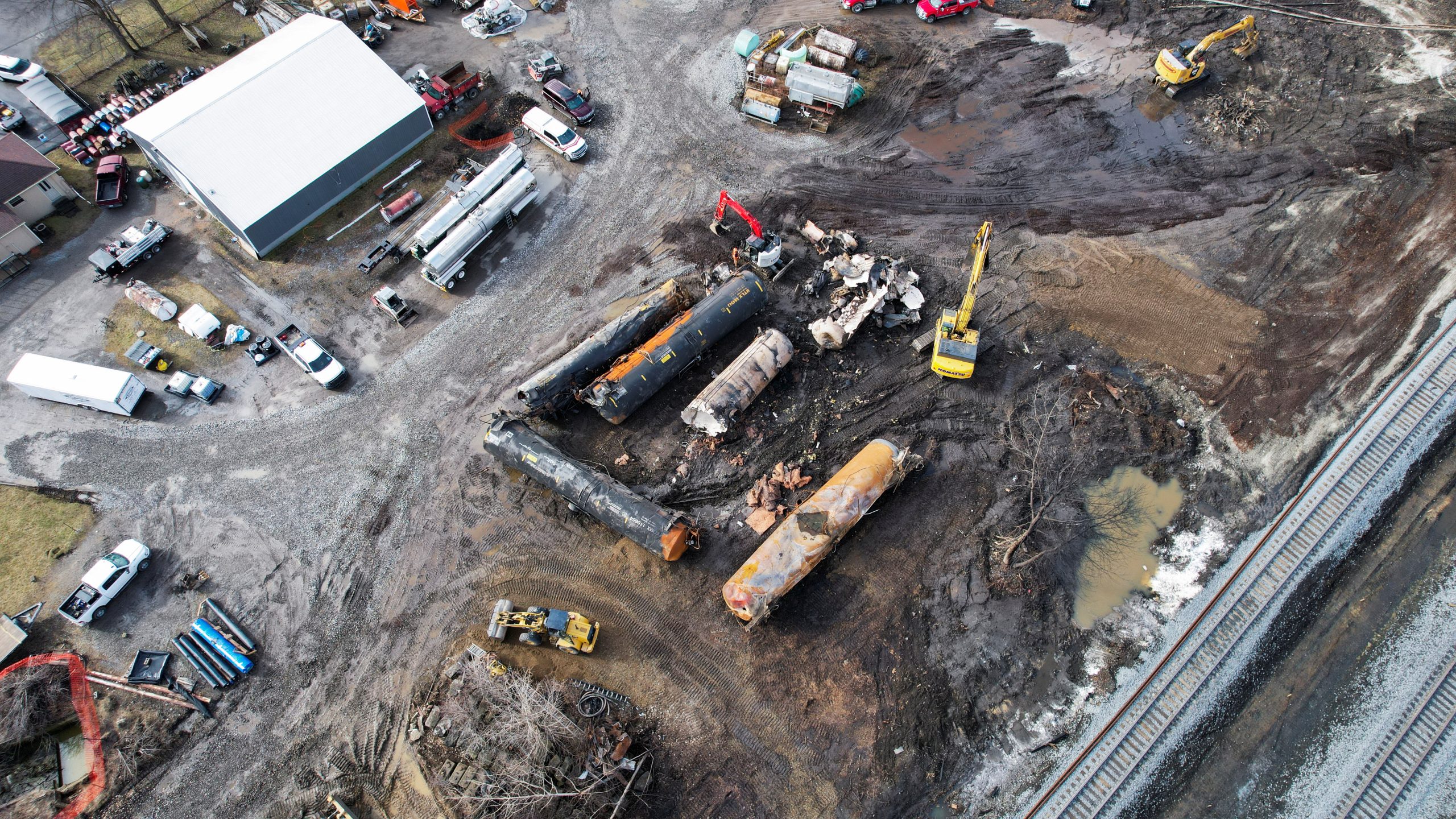
Vicky Arias, FISM News
[elfsight_social_share_buttons id=”1″]
Rail workers are reporting feeling sick during the clean-up of the East Palestine, Ohio train derailment as twelve rail union leaders meet with White House officials to address train safety.
Employees who were sent in to clean up the toxic chemical spill — which resulted from a disastrous Feb. 3 Norfolk Southern train derailment — have reported migraines and nausea and said they weren’t given proper protective equipment to guard against unsafe chemical exposure.
Union leaders met with Transportation Secretary Pete Buttigieg and the administrator of the Federal Railroad Administration, Amit Bose, Wednesday to explain the illnesses and the need for better train safety.
Buttigieg has faced criticism for his delayed response to the catastrophe, waiting over a week to publicly make a statement on the tragedy and stalling for nearly three weeks to visit the disaster site. President Joe Biden has yet to visit the damage and, according to a recent New York Post report, stated that he has no plans to do so in the immediate future.
The president of the Brotherhood of Railroad Signalmen, Mike Baldwin, explained the importance of Wednesday’s meeting.
“Today’s meeting is an opportunity for labor to share what our members are seeing and dealing with day to day,” Baldwin said, in a CNBC News report. “The railroaders’ labor represents … the employees who make it safe and they must have the tools to do so.”
The meeting comes as the general chairman of the American Rail System Federation of the Brotherhood of Teamsters, Jonathan Long, sent a letter Wednesday to Secretary Buttigieg “imploring” him to “use [his] influence and power to stop [Norfolk Southern’s] reckless business practices that endanger the public and the workers.”
Long explained that he “received reports that [Norfolk Southern] neither offered nor provided … workers with appropriate personal protective equipment, such as respirators that are designed to permit safely working around vinyl chloride, eye protection, and protective clothing such as chemical restraint suits, rubber overboots and rubber gloves rated for safely working around the spilled chemicals that prevent direct contact with such substances.”
DANGEROUS AIR QUALITY
Results of an air quality study from the Texas A&M Superfund Research Center posted Friday revealed that “some concentrations in East Palestine [Ohio] for 9 out of [approximately] 50 chemicals EPA reported are higher than ‘normal.’ If these levels continue, they may be of health concern, especially acrolein.”
According to the Centers for Disease Control and Prevention, “inhaled acrolein is highly toxic. Acrolein is irritating to the upper respiratory tract even at low concentrations.” Additionally, “direct contact with liquid acrolein causes rapid and severe eye and skin irritation or burns.”
NORFOLK SOUTHERN BEFORE CONGRESS
Norfolk Southern CEO Alan Shaw is set to appear before Congress on March 9 to explain his knowledge of the facts surrounding the accident.
“[Shaw] will share what he knows about the incident,” a spokesperson for the CEO said, according to ABC News. “As the [National Transportation Safety Board] has noted, there are also industry-wide issues, and we would expect that other industry participants will also be involved in future hearings. The rail industry needs to learn as much as it can from East Palestine, as can the owners of the rail cars.”
Meanwhile, on Wednesday a bi-partisan bill was introduced by J.D. Vance, R-Ohio, and Sherrod Brown, D-Ohio, to “enhance safety requirements for trains transporting hazardous materials.”
Senator Vance in a press release explained the importance of the bill.
“Through this legislation, Congress has a real opportunity to ensure that what happened in East Palestine will never happen again,” Vance said.
We owe every American the peace of mind that their community is protected from a catastrophe of this kind. Action to prevent future disasters is critical, but we must never lose sight of the needs of the Ohioans living in East Palestine and surrounding communities. One day, the TV cameras will leave, and the news cycle will move on, but the needs of those Ohioans will remain. I will never stop fighting to deliver the support they need.
